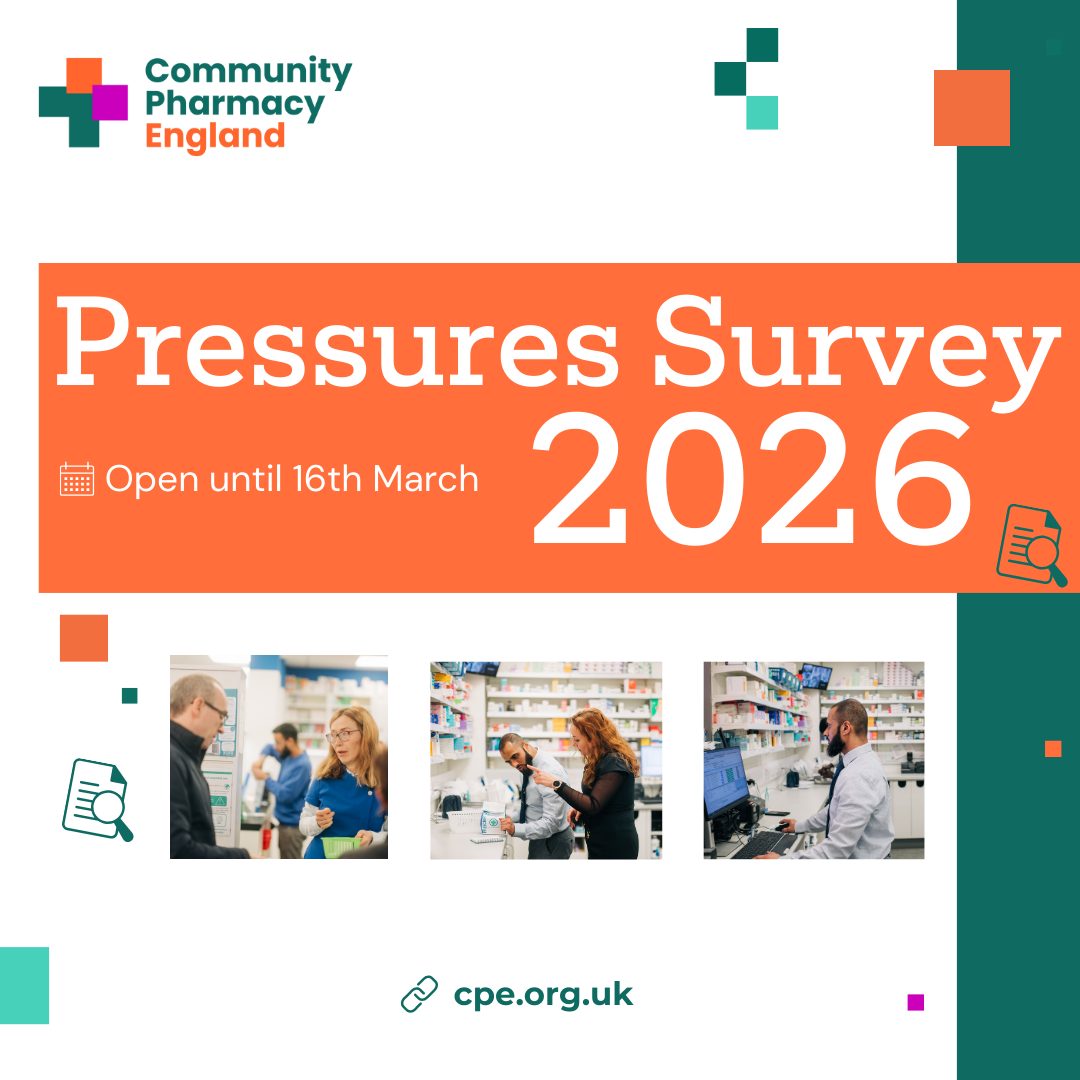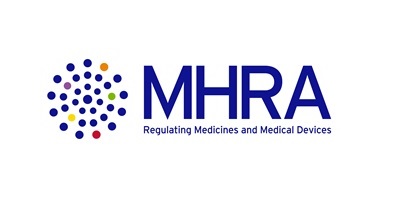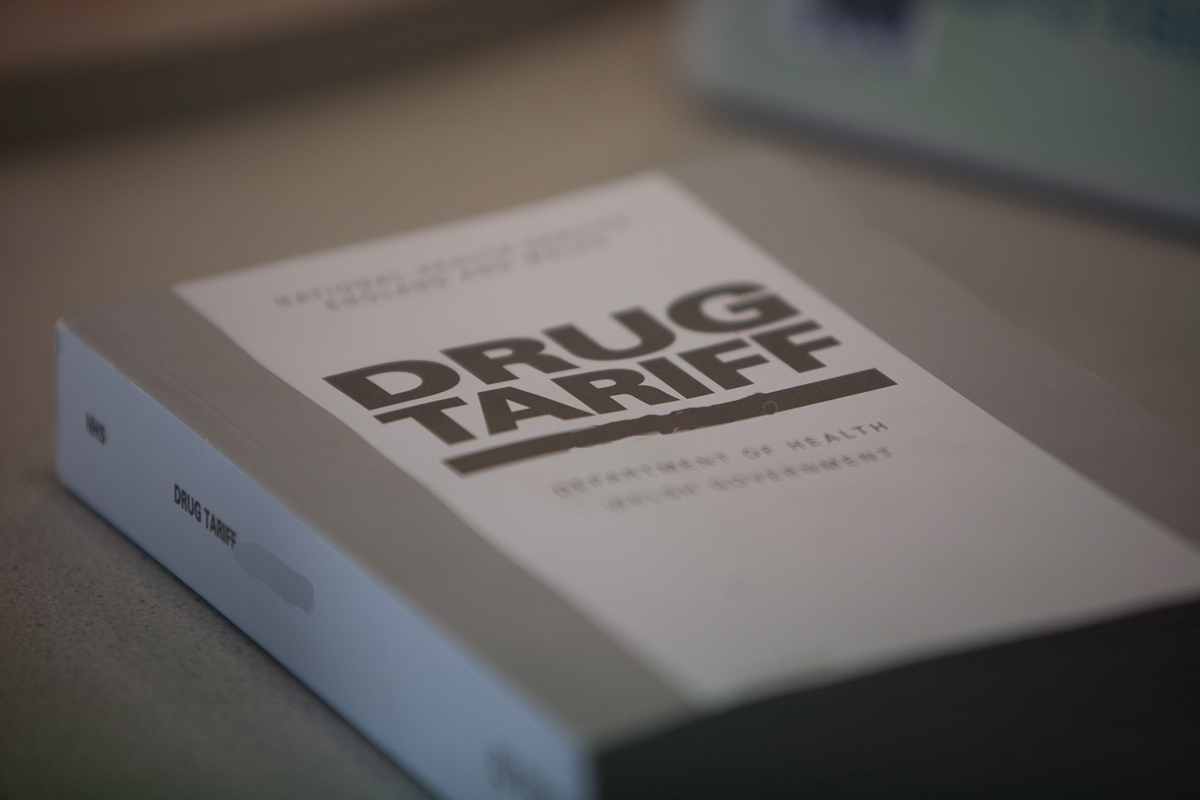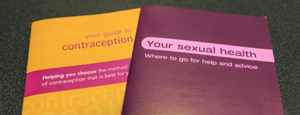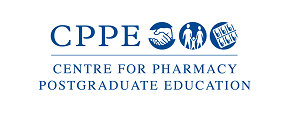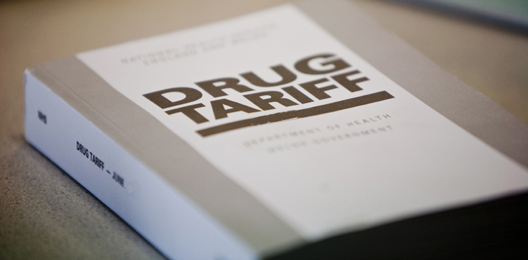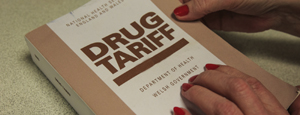Minor illnesses resource hub
Published on: 25th January 2018 | Updated on: 15th March 2022
Please note this webpage is intended to be used by healthcare professionals only.
This one-stop resource hub has been compiled to support community pharmacy teams to manage minor illnesses, and identify any red flag symptoms.
Just Ask: Could it be Sepsis?
Sepsis is a ‘silent killer’ that can happen as a response to any injury or infection, anywhere in the body. We spoke to Melissa Mead from the UK Sepsis Trust who explains how important it is for all healthcare professionals to be able to recognise the signs and symptoms of sepsis.
Click on a heading below to reveal more information.
| Name (and link) | Brief description | Author |
| Children and their medicines: enhancing your practice | This programme will help you consider the differences in optimising medicines use in children, and deals with altered drug handling, unlicensed or off-label medicines, and effective communication with children. This focal point can be run as a workshop, used in a learning set or as individual distance learning (e-assessment also available). | CPPE |
| Child health e-course | An online course, over several weeks. Currently available as waiting to hear when next course is due to start. | CPPE |
| Consulting with children and young people | This e-learning programme focuses on the key skills and behaviours you can adopt to make sure you communicate effectively with children and young people and manage the triadic consultation effectively. | CPPE |
| Common clinical conditions and minor ailments distance learning | This programme will help to update your knowledge and skills on the common clinical conditions and minor ailments that present themselves in community pharmacy. It contains practical tips and advice on how to identify, recognise and manage minor ailments. | CPPE |
| Minor ailments: a clinical approach e-assessment | Note: This e-assessment is not linked with a particular CPPE minor ailments learning programme. | CPPE |
| Advanced training in assessment and management of urgent cases | Two-day workshop that can be commissioned. It’s currently available to pharmacists who have a patient-facing role in community pharmacy within the North West. | CPPE |
| Child health learning floor of thelearningpharmacy.com | theLearningpharmacy.com™ offers bite-sized learning activities to help the community pharmacy team develop together to deliver better outcomes for patients. This e-learning platform also covers other relevant topics such as Dermatology. | CPPE |
| Children’s oral health e-lecture | The recorded presentation talks about the process of tooth decay, the position we are in nationally, what is being done to combat the problem, and how this applies to pharmacy teams. | CPPE |
| DMIRS gateway page | Resources including a quiz, core and foundation learning, advanced learning and assessments to support pharmacy staff in providing DMIRS. | CPPE |
| Sepsis | Therapeutics resource section created as part of a national awareness campaign. | CPPE |
| Stop smoking: secondhand smoke | This e-learning programme has been produced to support anyone who has contact with children and families on how to deliver very brief advice on secondhand smoke. | CPPE |
| Urgent care: a focus for pharmacy distance learning programme | This learning programme has been written to help you to reflect on the role of the pharmacy team in delivering services that can improve patients’ experience of urgent care. In particular, Section 4 focuses on the management of a number of conditions that patients commonly present with that require urgent care and uses these as examples to explore how extending pharmacy practice could change referral patterns. |
CPPE |
| Safeguarding children and vulnerable adults: a guide for the pharmacy team | The aim of this learning resource is to give you the skills, knowledge and confidence to deal professionally with any safeguarding issues that may arise in the course of your practice. | CPPE |
| Antibacterial resistance- a global threat to public health: the role of the pharmacy team – distance learning | The aim of this learning programme is to update your knowledge about the issues of antimicrobial resistance and healthcare-associated infections (HCAIs) so that you can contribute to reducing their impact. You will learn about the important role the pharmacy team can play in supporting healthcare professionals and patients to optimise patient outcomes in antimicrobial therapy, while minimising harm. | CPPE |
| Reducing antimicrobial resistance e-learning | This e-learning programme has been developed by Health Education England and is available on the e-Learning for Healthcare website. It is designed to support all health and social care staff to understand the threats caused by antimicrobial resistance. | CPPE |
| Name (and link) | Brief description | Author |
| NPA CPD hub | Search ‘Children’ or ‘Common ailments’ in this CPD resources database for relevant clinical articles and research studies. Please note you will need an NPA login to access the hub. | National Pharmacy Association (NPA) |
| RPS resources hub | Search this resources database for relevant information. Please note that only RPS members can view full documents. | Royal Pharmaceutical Society (RPS) |
Information for patients
| Name (and link) | Brief description | Author |
| Child health tools | Links to a variety of interactive tools, smartphone apps and podcasts. | NHS website |
|
|
Use this visual guide to help you identify common conditions and illnesses that may affect your child. Includes conditions such as measles, slapped cheek syndrome, chicken pox and warts. | NHS website |
| Children’s health – common health questions | Answers to frequently asked questions relating to the health and wellbeing of children. | NHS website |
| Name (and link) | Brief description | Author |
| Constipation in children | Age from 0 months to 18 years. This CKS topic covers the diagnosis, management, and indications for referral of children and young people with idiopathic constipation. | NICE – CKS |
| Gastroenteritis | This CKS topic covers the management of gastroenteritis (including presumed infectious gastroenteritis) in adults and children, and briefly covers the prevention of gastroenteritis. It covers the age from 1 month onwards. | NICE – CKS |
| GORD in children | This CKS topic covers the diagnosis, assessment, and management of gastro-oesophageal reflux disease (GORD) in children younger than 2 years of age. | NICE – CKS |
Information for patients
| Name (and link) | Brief description | Author |
| Colic | This webpage provides information on how to treat colic. | NHS website |
| Constipation | This patient factsheet explains what’s ‘normal’ and when to seek advice from a health professional. | Self Care Forum |
| Diarrhoea and vomiting in babies and children | This webpage provides information on how to look after a child with diarrhoea or vomiting. | NHS website |
| Name (and link) | Brief description | Author |
| Cough – acute with chest signs in children | This CKS topic covers the management of a child with an infective exacerbation of asthma, viral-induced wheeze, bronchiolitis, or community-acquired pneumonia. | NICE – CKS |
| Food allergy in under 19s | This guideline covers assessing and managing food allergy in children and young people under 19. It aims to improve symptoms such as faltering growth and eczema by offering advice on how to identify food allergy and when to refer to secondary or specialist care. | NICE |
| Sinusitis | This CKS topic covers the diagnosis and management of acute and chronic sinusitis. Age from 3 months onwards. | NICE – CKS |
Information for patients
| Name (and link) | Brief description | Author |
| Allergies | This webpage provides information on allergies, including symptoms of an allergic reaction. | NHS website |
| Catarrh | This webpage provides information on catarrh. | NHS website |
| Common cold | A guide on how to treat the common cold. | NHS website |
| Cough | A guide on how to treat a cough. | NHS website |
| Croup | A guide on how to treat croup. | NHS website |
| Flu | A guide on how to treat the flu. | NHS website |
| Hay fever | A guide on hay fever. | NHS website |
| Respiratory tract infections | This webpage provides information on respiratory tract infections. | NHS website |
| Whooping cough | A guide on how to treat whooping cough. | NHS website |
| Name (and link) | Brief description | Author |
| Feverish children – risk assessment | This CKS topic covers the assessment of children up to 5 years of age who have a feverish illness. It provides a practical, evidence-based scheme for assessing the risk of a feverish child having a serious illness such as septicaemia or meningitis. In addition it provides an approach to how these children should be assessed, whether presenting remotely (e.g. seeking telephone advice) or face-to-face in primary care. | NICE – CKS |
| Feverish children – management | This CKS topic covers advice about using paracetamol and ibuprofen in feverish children from 1 month to 16 years of age. | NICE – CKS |
Information for patients
| Name (and link) | Brief description | Author |
| Anal pain | This webpage provides information on pain in the bottom. | NHS website |
| Ankle pain | This webpage provides information on how to tell if your ankle is broken. | NHS website |
| Arm or wrist pain | This webpage provides information on how to tell if your arm or wrist is broken. | NHS website |
| Elbow and arm pain | A guide on how to treat elbow and arm pain. | NHS website |
| Finger pain | This webpage provides information on how to tell if your finger is broken. | NHS website |
| Fever in children | This patient factsheet explains what’s ‘normal’ and when to seek advice from a health professional. | Self Care Forum |
| Hand pain | A guide on how to treat a hand pain. | NHS website |
| Heartburn and indigestion | This patient factsheet explains what’s ‘normal’ and when to seek advice from a health professional. | Self Care Forum |
| Hip pain in children (irritable hip) | A guide on how to look after a child with hip pain. | NHS website |
| Knee pain | A guide on how to treat knee pain and swelling. | NHS website |
| Low back pain | This patient factsheet explains what’s ‘normal’ and when to seek advice from a health professional. | Self Care Forum |
| Scarlet fever | This webpage provides information on how to treat scarlet fever. | NHS website |
| Shoulder pain | A guide on how to treat shoulder pain. | NHS website |
| Sleep tips for children | This article gives advice on helping your child get a good night’s sleep. | NHS website |
| Sprains and strains | This patient factsheet explains what’s ‘normal’ and when to seek advice from a health professional. | Self Care Forum |
| Tiredness and fatigue | Links to a variety of articles to understand tiredness and find ways to combat it. | NHS website |
| Toe pain | This webpage provides information on how to tell if your toe is broken. | NHS website |
| Name (and link) | Brief description | Author |
| Meningitis – bacterial meningitis and meningococal disease | This CKS topic covers the primary care management of suspected acute bacterial meningitis and meningococcal disease in children and adults. | NICE – CKS |
| Sepsis: recognition, diagnosis and early management | This guideline covers the recognition, diagnosis and early management of sepsis for all populations. The guideline committee identified that the key issues to be included were: recognition and early assessment, diagnostic and prognostic value of blood markers for sepsis, initial treatment, escalating care, identifying the source of infection, early monitoring, information and support for patients and carers, and training and education. | NICE |
| Sepsis: Z-Card with Symptoms | This leaflet describes the symptoms of sepsis to look out for in children and adults. Further clinical information and resources for healthcare professionals are available here. | Sepsis Trust |
Information for patients
| Name (and link) | Brief description | Author |
| Athlete’s foot | This webpage provides information on athlete’s foot. | NHS website |
| Fungal nail infections | A guide on how to treat a fungal nail infection. | NHS website |
| Head lice and nits | A guide on how to treat head lice. | NHS website |
| Impetigo | A guide on how to treat impetigo. | NHS website |
| Itchy skin | A guide on how to treat itchy skin. | NHS website |
| Meningitis | This webpage provides information on meningitis. | NHS website |
| Ringworm | A guide on how to treat ringworm. | NHS website |
| Scabies | A guide on how to treat scabies. | NHS website |
| Sepsis | This webpage provides information on sepsis. | NHS website |
| Threadworms | A guide on how to treat threadworms (pinworms). | NHS website |
| Name (and link) | Brief description | Author |
| Bedwetting | This CKS topic covers the management of children with nocturnal enuresis (bedwetting). Age from 24 months to 19 years. | NICE – CKS |
| Urinary tract infection – children | This CKS topic covers the management in primary care of urinary tract infection (UTI) in infants and children. | NICE – CKS |
Information for patients
| Name (and link) | Brief description | Author |
| Urine symptoms in men | This patient factsheet explains what’s ‘normal’ and when to seek advice from a health professional. | Self Care Forum |
| Vaginal discharge | A guide on what’s ‘normal’ vaginal discharge and when it may be an infection. | NHS website |
| Vaginitis | This webpage provides information on vaginitis. | NHS website |
| Name (and link) | Brief description | Author |
| Dental factsheets | This series of dental factsheets has been created specifically for community pharmacy teams. Covering a wide range of dental and oral conditions, the factsheets are intended to be used to deal with common conditions and signpost patients where appropriate. | Health Education England |
| Sore throat | This CKS topic covers the management of acute sore throat due to pharyngitis or tonsillitis in all ages. | NICE – CKS |
| Sore throat (acute): antimicrobial prescribing | This guideline sets out an antimicrobial prescribing strategy for acute sore throat. | NICE |
Information for patients
| Name (and link) | Brief description | Author |
| Earache | A guide on how to treat earache. | NHS website |
| Earwax build-up | A guide on how to treat earwax build-up. | NHS website |
| Eye injuries | This webpage provides information on how to treat eye injuries. | NHS website |
| Eyes (watering) | This webpage provides information on watering eyes. | NHS website |
| Eyelid problems | A guide on how to treat eyelid problems. | NHS website |
| Hearing loss | This webpage provides information on hearing loss. | NHS website |
| Middle ear infection | This patient factsheet explains what’s ‘normal’ and when to seek advice from a health professional. | Self Care Forum |
| Mouth ulcers | A guide on how to treat mouth ulcers. | NHS website |
| Red eye | This webpage provides information on red eye which could indicate conjunctivitis. | NHS website |
| Sore throat | This patient factsheet explains what’s ‘normal’ and when to seek advice from a health professional. | Self Care Forum |
| Teething | This webpage provides information on tips for helping your teething baby. | NHS website |
| Name (and link) | Brief description | Author |
| Eczema – atopic | This CKS topic covers the diagnosis, assessment, and management of atopic eczema in primary care in all ages. | NICE – CKS |
| Psoriasis: assessment and management | This guideline covers assessing and managing psoriasis in adults, young people and children. It aims to improve long-term disease control and quality of life for people with psoriasis. | NICE |
| Wound care products | This document summarises the evidence-base on wound care products. It is a key therapeutic topic which has been identified to support medicines optimisation. | NICE |
Information for patients
| Name (and link) | Brief description | Author |
| Acne (spots) | This patient factsheet explains what’s ‘normal’ and when to seek advice from a health professional. | Self Care Forum |
| Animal and human bites | This webpage provides information on how to treat animal and human bites. | NHS website |
| Blisters | A guide on how to treat blisters. | NHS website |
| Burns and scalds | This webpage provides information on how to treat burns and scalds. | NHS website |
| Chickenpox | A guide on how to treat chickenpox. | NHS website |
| Contact dermatitis | This webpage provides information on contact dermatitis. | NHS website |
| Cuts and grazes | This webpage provides information on how to treat cuts and grazes. | NHS website |
| Eczema | This patient factsheet explains what’s ‘normal’ and when to seek advice from a health professional. | Self Care Forum |
| Hair loss | A guide on hair loss. | NHS website |
| Hand, foot and mouth disease | A guide on how to treat hand, foot and mouth disease. | NHS website |
| Insect bites and stings | This webpage provides information on how to treat insect bites and stings. | NHS website |
| Measles | This webpage provides information on measles. | NHS website |
| Skin rashes in children | A visual guide giving parents and carers a better idea about what could be causing their child’s rash. | NHS website |
For more information on this topic please email comms.team@cpe.org.uk

